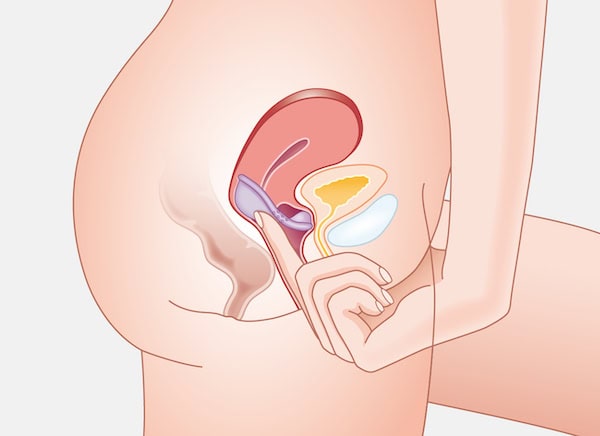
Your vagina is pretty amazing. It’s self-cleaning, has its own protective ecosystem, and generally knows how to take care of itself… when we let it. But here’s something that might surprise you: your choice of birth control can play a big role in supporting (or disrupting) vaginal health and this delicate balance.
Let’s talk about how non-hormonal birth control methods, like the Caya diaphragm, can be part of a healthy approach to intimate wellness. And yes, we’re going to bust some myths along the way because apparently, some people think jade eggs belong in vaginas. Spoiler alert: they don’t.
The Vaginal Ecosystem: A Quick Science Lesson
Think of your vagina like a carefully balanced garden. It has its own pH level (usually between 3.8 and 4.5—that’s acidic, like coffee), beneficial bacteria called lactobacilli that act like tiny bodyguards, and natural moisture that keeps everything comfortable.
This ecosystem works hard to:
- Keep harmful bacteria and yeast from taking over
- Maintain the right acidity level
- Produce natural lubrication
- Clear away dead cells and other debris
Pretty impressive for something that doesn’t even have a brain, right?
If you’ve been dealing with recurring vaginal health issues and you’re using hormonal birth control, it might be worth exploring whether a non-hormonal option like Caya could be a better fit for your body.

How Hormonal Birth Control Can Affect Your Vaginal Health
Here’s where things get interesting. Hormonal birth control—like the pill, patch, or ring—can sometimes throw off this natural balance. The synthetic hormones can:
Change your natural moisture levels: Some women experience vaginal dryness because hormonal methods can affect natural lubrication production.
Alter your pH balance: When hormone levels change, it can make your vagina less acidic, which might make it easier for unwanted bacteria to grow.
Affect your natural bacteria: The good bacteria in your vagina can be sensitive to hormone changes, potentially leading to more frequent yeast infections or bacterial vaginosis for some women.
Dr. Jen Gunter, gynecologist and author of “The Vagina Bible,” explains that while these effects don’t happen to everyone, they’re real concerns for some women. As she puts it, “The vagina is an ecosystem, and like any ecosystem, it can be affected by changes in hormones.”
The Non-Hormonal Advantage
This is where non-hormonal methods like barrier contraception shine. Methods like the Caya diaphragm work by creating a physical barrier—no hormones required. This means:
Your natural cycles stay intact: Your body continues its normal hormone production, keeping your vaginal ecosystem in its natural rhythm.
No hormone-related dryness: Many women find that switching from hormonal to non-hormonal methods improves their natural lubrication.
Fewer disruptions to pH: Without synthetic hormones affecting your system, your vagina can maintain its preferred acidic environment more easily.
Caya and Vaginal Health: The Specifics
The Caya contoured diaphragm is designed with vaginal health in mind:
Medical-grade silicone: Unlike some materials that can harbor bacteria, Caya’s silicone is non-porous and easy to clean thoroughly.
Proper fit matters: Because Caya is sized to fit most women comfortably, there’s less risk of irritation from an ill-fitting device.
Used with water-based gels: The recommended contraceptive gels are water-based, which is more compatible with your body’s natural environment and pH levels.
Limited wear time: Caya is designed to be removed within 24 hours, giving your vagina regular breaks to breathe and reset without added hormones in your system.

Busting Some Wellness Myths (Because We Have To)
Let’s take a quick detour to address some of the wild stuff floating around the internet about vaginal health:
Myth: You need to “detox” your vagina with steaming, douching, or special products. Reality: Your vagina is self-cleaning. As Dr. Gunter says, “The vagina is like a self-cleaning oven.” Adding goopy products often does more harm than good.
Myth: Expensive wellness products will “balance” your pH. Reality: Your vagina balances its own pH when left alone. Save your money for something actually useful, like good birth control.
Myth: All bacteria in the vagina are bad. Reality: The good bacteria (lactobacilli) are your friends! They’re working 24/7 to keep you healthy.
Supporting Your Vaginal Health Naturally
Here are some actually science-backed ways to support your vaginal health:
Choose breathable underwear: Cotton is your friend. Let things air out when possible.
Avoid harsh soaps: Gentle, unscented soap on the outside only. The inside cleans itself, remember?
Stay hydrated: Good hydration supports all your body’s systems, including vaginal health.
Support your good bacteria: While your vagina usually maintains its own bacterial balance, eating a balanced diet, getting enough sleep, and avoiding unnecessary antibiotics can help support your natural lactobacilli. Some women find probiotics helpful, though the research is still developing.
Consider your birth control: If you’re experiencing recurring issues, talk to your healthcare provider about whether your contraceptive method might be a factor.
Practice safe sex: Use protection against STIs, which can disrupt your vaginal ecosystem. While spermicides can affect your pH levels, protecting yourself from life-altering STIs is priority.
When to Talk to Your Healthcare Provider
While switching to a non-hormonal method like Caya can help some women with vaginal health issues, it’s not a magic cure-all. You should definitely talk to your healthcare provider if you experience:
- Recurring yeast infections or bacterial vaginosis
- Persistent unusual discharge, odor, or itching
- Pain during sex or inserting contraceptives
- Any symptoms that concern you
Dr. Mary Jane Minkin, clinical professor of obstetrics and gynecology at Yale School of Medicine, reminds women that “vaginal health is an important part of overall health, and there’s no shame in discussing concerns with your healthcare provider.”
The Bottom Line on Vaginal Health and Birth Control
Your contraceptive choice is deeply personal, and vaginal health is just one factor to consider. But it’s an important one. Remember: your vagina is resilient and smart. Give it the respect it deserves by choosing products and methods that work with your body’s natural processes, not against them.
Ready to Learn More?
If you’re curious about how Caya might fit into your approach to intimate wellness, check out our detailed information about how Caya works or find a provider who can discuss whether it’s right for you.
For more evidence-based information about women’s health, we recommend following reputable sources like:
- Dr. Jen Gunter’s books and substack, The Vajenda
- The American College of Obstetricians and Gynecologists (ACOG)
- Madam Ovary, a blog by Mary Jane Minkin
The information included in this blog post is accurate as of publication. For the most current details about Caya, or if you have specific questions about your contraception options, please visit our FAQ at Caya.US.com or consult with your healthcare provider.



